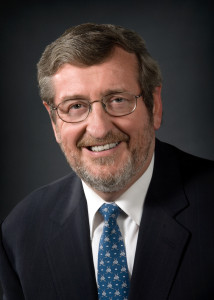 When interviewed for America’s Healthcare Leaders, Michael Dowling proactively used the opportunity to talk in-depth about something he’s passionate about: Northwell Health (formerly North Shore-LIJ Health System). Dowling has seen the New York area health system come a long way since he first joined Northwell in 1995, and as the president and CEO since 2002, he has had much to do with that progress and dramatic success.
When interviewed for America’s Healthcare Leaders, Michael Dowling proactively used the opportunity to talk in-depth about something he’s passionate about: Northwell Health (formerly North Shore-LIJ Health System). Dowling has seen the New York area health system come a long way since he first joined Northwell in 1995, and as the president and CEO since 2002, he has had much to do with that progress and dramatic success.
One thing Dowling prides himself and his health system on is the emphasis on “having all the tools in the toolbox.” With nearly 20 hospitals, over 400 ambulatory and physician practices, a major research center, a medical school, the largest corporate university in the healthcare industry, an extensive emergency response and transportation system, a state of the art patient simulation center, and many other exciting developments in the works—Northwell Health certainly has a lot of tools in its tool box!
As pleased as he is with all these aspects of the many-faceted health system, Dowling is quick to point out that the most valuable tools in Northwell’s toolbox are the people. Whether it’s the focus on excellent customer service or the commitment to training, rewarding, and advancing employees, everywhere you look a “people-focus” is evident within the health system. As Dowling explained, “You can build beautiful buildings, develop great strategic plans, and have wonderful technology. But you also have to have the right people, and you have to invest in the human resource. Because the building can look nice, but if you don’t invest in the people working there, the building doesn’t matter.”
The Northwell Health system is uniquely structured for such a large organization in that there is just one CEO, Dowling, for every individual entity within the system, as well as for the system as a whole. Likewise, there is just one chief financial officer, one chief purchasing officer, one chief legal officer, etc. Also, while every individual entity technically has its own separate board, they’re all the same people, so essentially there is just one board of trustees as well. This streamlined leadership structure applies even to the level of clinical chairpersons, and allows for higher efficiency and consistent quality and performance system-wide.
Dowling explained that when he appoints people to run each individual entity, he pays a lot of attention to picking those people, “because I not only have to pick the right individual person, I have got to pick the individual who can work with all the other individuals. It’s a team. They have to want to help one another. Their compensation is tied to how well their own facility does and how well the totality does.”
Thanks to this team focus and the highly integrated and streamlined organizational structure, Northwell’s management team is able to handle mergers and integration like a well-oiled machine. Dowling noted, “I’ve never set up a separate arm to do this—it’s all done by regular management. I don’t even have to tell them, I just say, ‘Let’s go integrate,’ and it’s done.” He went on to explain, “Remember, you have to build the culture where everybody feels the role of bringing everybody together is their job, not somebody else’s job.”
Another benefit of having such a well-integrated healthcare organization is its ability to efficiently handle disaster response. The Northwell Health system has long excelled in disaster preparedness, with its own response teams made up of highly trained former emergency personnel. Add to that a strategically located central command center and a very large, wide-coverage transport system, and the health system’s ability to handle disasters is truly unrivaled by any other system in the area.
When asked to talk about the health system’s key strategic initiatives and drivers, Dowling responded,
“I believe it’s all about transformation. If you’re running any business you have to be in the transformational business. You have to be constantly transformed. You cannot become complacent. The moment you get satisfied with what you’ve got is the moment that you begin to fail.”
Dowling noted that one big way the healthcare business is being transformed is in regard to customer service. “As we move forward the customer is going to become more important. The consumerism is beginning to win. And obviously, if you’re in the customer service business, service has to be good otherwise your customers won’t come back.”
Dowling also pointed to a significant shift from a focus on treating the ill to more of a focus on promoting health. As an example, he explained:
“I don’t want to do spine surgery, I want to have a back pain management program—two totally different things. Because if I have a back pain program, the last thing I’ll want to do is surgery. But if I have a surgical spine program, I’ll do surgery. The trouble with the current system is I get paid to do surgery; I don’t get paid to do back pain management. So I want to change the system.”
Dowling went on to note that making that switch—from “the illness business” to “the health business”—will not be easy. “If you want to make that switch you’ve got to change the way you get paid. You can’t be in the health business, the way I define it, and be in the fees per service business. If you want to be in the health business you’ve got be in the risk business, which gives you the freedom.”
With that thought in mind, Dowling revealed how Northwell Health chose to build its own insurance company (CareConnect, launched in 2013). Dowling explained that they were already building all of the competencies to take risk, noting, “If you build the competencies to take risk you’re essentially building an insurance company. And if we’re going to build the thing, we might as well have our own license too!”
Knowing Northwell’s track record, undoubtedly their new insurance company is just one of many fascinating developments we can expect to see from the health system in the coming years!
